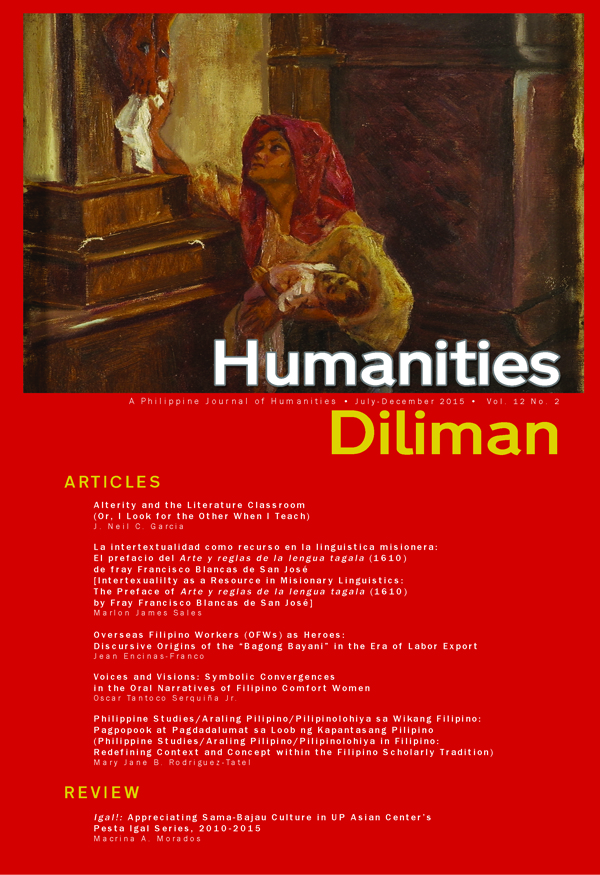Philippine Studies/Araling Pilipino/Pilipinolohiya sa Wikang Filipino: Pagpopook at Pagdadalumat sa Loob ng Kapantasang Pilipino
Abstract
Since its inception as an area studies program instituted by the United States after World War II, Philippine Studies in the University of the Philippines has undergone a radical transformation. From being a neo-colonial program designed to create a venue for the Americans to perpetuate their hegemony in Philippine scholarship, it has become a springboard from which some progressive Filipino intellectuals particularly in the 1970’s formally launched the indigenization (read: Filipinization) movement in the Philippine academic community. Recontextualized and reconceptualized as part of the nationalist project, the program, since then, would become a site of engagement of Filipino scholars in the development of our own scholarly tradition. It would take on significant epistemological and methodological shifts emphasizing the vital role of Filipino language as primary tool of knowledge production.
To map out the extent of this paradigm shift, knowledge production in Filipino both at the undergraduate and graduate levels of the Philippine Studies program is analyzed. Two general directions based on Virgilio Enriquez’s SP construct are discernible along this line: (a) “indigenization from within” or the development of our own analytical tool and conceptual framework using our indigenous language and culture as source; and (b) “indigenization from without” or appropriation/adaptation of foreign formulations to local realities. Such production is viewed in the larger context of the development of a “Philippine studies” envisioned by Rizal in the 19th century and carried on by Filipino scholars over the last five decades in their efforts to construct a more meaningful framework for understanding Filipino psyche, culture and society. It is hoped that a fully-developed Filipino academic discourse shall be our significant contribution to a truly universal scientific tradition.
Keywords: Philippine studies, indigenization, Filipinization, language and knowledge production


